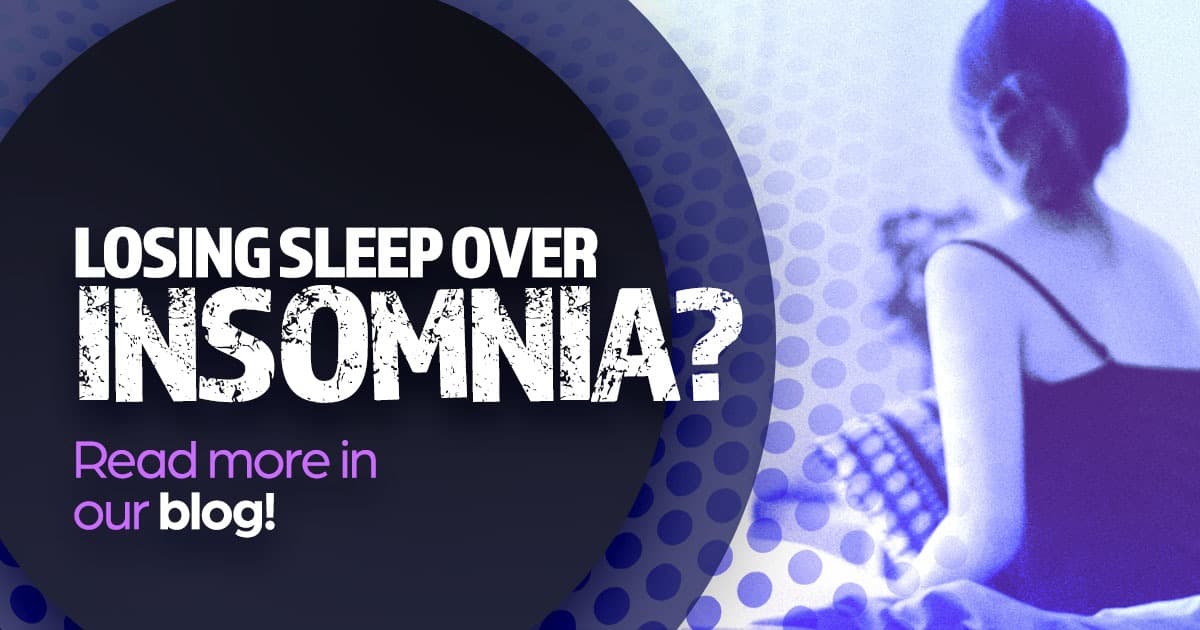Sleep is essential to our overall health. Despite this undeniable fact, restful nights’ sleep continues to evade a growing number of people around the world. Insomnia is a sleep disorder that makes it difficult to fall asleep, stay asleep, or wake too early and be unable to fall back asleep. Insomnia can occur alone or be the result of other medical conditions or side effects from medications. Talking with your doctor is best to rule out any underlying issues. However, you can make changes to take back control of your sleep and improve insomnia symptoms.

Sleep Hygiene
You know about oral hygiene and personal hygiene, but have you heard of sleep hygiene? Sleep hygiene involves changes in behavior and environment that help promote healthy sleep patterns. Start gradually and work your way up. Taking baby steps will help you not get overwhelmed.
- Eliminate Stimulants: Stimulants can make it difficult to fall asleep and stay asleep, with effects that last for hours.
- Limit Naps: Naps interrupt cues for bedtime like darkness and times designated for falling asleep.
- Exercise Regularly: Exercise improves sleep quality and duration. Avoid working out immediately before bed.
- Keep the Bed for Sleep: Eating, doing work, and watching TV are all activities that increase alertness and make it difficult to fall asleep.
- Put the Comfort Back in Your Sleep Environment: High-quality sheets and a high-performance mattress and pillow make your bed feel inviting. Blackout curtains keep light disturbances out, and keeping a comfortable temperature avoids interruptions from it being too hot or cold.
If you still have trouble falling asleep during these transitions, different relaxation methods may help ease you into sleep. Sleep disturbances can be complicated, which means there is no one-size-fits-all approach. You may need to try other options until you find one that works for you. Working with your doctor for ongoing sleep issues and keeping a sleep journal will help identify what’s hurting your sleep. It can also let you know how well the changes you make are working.
Treating Insomnia and Hidden Risks
The first line of treatment for insomnia is cognitive behavioral therapy. It aims to help you develop good sleep habits and avoid behaviors that keep you from sleeping well. Prescription medications such as Lunesta, Ambien, and Sonata are some of the options available that aid in falling and staying asleep.

Over the last several decades, research has shown that insomnia is a risk factor for other health issues such as heart disease, diabetes, and mental illness. More work is needed so potential new options can be found that allow for earlier intervention. When treated early, you can reduce the potential risk of developing other illnesses. To learn more about how you can get involved in the insomnia studies here at Charlottesville Medical Research, call (484) 817-2442, or visit our study website.
References:
https://www.sleepfoundation.org/articles/healthy-sleep-tips


